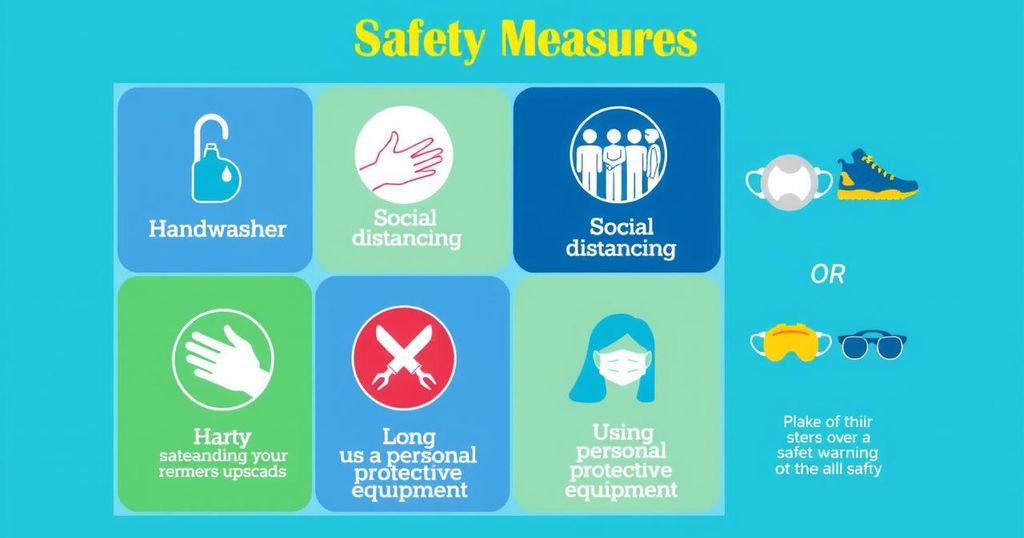Understanding Nigeria’s Lassa Fever Outbreak: Key Insights and Safety Measures
Lassa fever has resulted in 100 deaths in Nigeria in early 2025, with over 2,700 suspected cases. The disease, caused by the Lassa virus, has persisted due to poor awareness and diagnostic challenges. Experts call for increased public education and improved management strategies to curb the outbreaks. Safety measures recommended include maintaining cleanliness and safe food storage.
Lassa fever poses a significant health threat in Nigeria, with 100 fatalities reported in the initial three months of 2025 alone. The disease, which is transmitted from animals to humans, has resulted in 2,728 suspected cases and 535 confirmed cases across 13 states as of March 2, according to the Nigeria Centre for Disease Control (NCDC). The most affected states include Ondo, Bauchi, Edo, and Taraba. The current fatality rate is 18.7%, including the tragic loss of a 31-year-old physician.
Lassa fever is a viral hemorrhagic disease caused by the Lassa virus, first discovered in 1969 in Borno, Nigeria. The virus primarily spreads through contact with the Natal multimammate mouse, prevalent in rural areas with inadequate sanitation. Infection occurs via contaminated food or direct contact with infected rodents, leading to symptoms that begin with fever, weakness, and malaise, later progressing to severe headaches and nausea. Although 80% of cases are mild, severe instances, particularly among pregnant women, can result in high mortality rates.
Nigeria experiences annual Lassa fever outbreaks due to factors including poor public awareness, delays in case reporting, and slow intervention efforts. The NCDC director general, Jide Idris, notes that the disease’s symptoms can mimic those of malaria and typhoid, complicating diagnosis. Since 2015, there has been a disturbing rise in reported cases and deaths, with laboratory testing capabilities expanding from three in 2017 to seven.
The timing of Lassa fever outbreaks typically peaks between October and May, coinciding with the dry season’s increase in human exposure to rodents. Changes in climate patterns may further extend transmission periods. Dr. Yetunde Abioye from the NCDC emphasizes that there is a need for improved surveillance and diagnosis, along with addressing existing gaps in community hygiene and food storage.
Despite efforts to manage Lassa fever, experts like virologist Oyewale Tomori believe the approach remains outdated. He argues that social, cultural, and economic factors contributing to the disease’s spread must be addressed comprehensively. Furthermore, inadequate food storage exacerbates the issue, leading to calls for systematic improvements in Nigeria’s agricultural practices.
In addressing Lassa fever, greater public awareness of its transmission and impact is critical. Tomori recommends declaring the situation a health emergency and urges citizens to play a proactive role in prevention. Additionally, Dr. Rotimi Adesanya advocates for targeted health education, community engagement, and ensuring access to essential treatments like the antiviral drug Ribavirin, which the WHO recognizes as effective if administered early.
To safeguard oneself against Lassa fever, the NCDC has established a national management system and is active in distributing protective equipment, treatment resources, and thermometers to high-risk areas. Public recommendations include maintaining cleanliness, storing food in sealed containers, sealing entry points to homes, and appropriately disposing of waste to deter rodents.
In summary, the persistent outbreaks of Lassa fever in Nigeria highlight significant public health challenges. The disease’s transmission, exacerbated by social, environmental, and economic factors, necessitates urgent reforms in awareness, healthcare support, and agricultural practices. Furthermore, the involvement of citizens and the strategic implementation of preventative measures are essential to control the ongoing spread of Lassa fever and mitigate its impacts on the population.
Original Source: africacheck.org




Post Comment